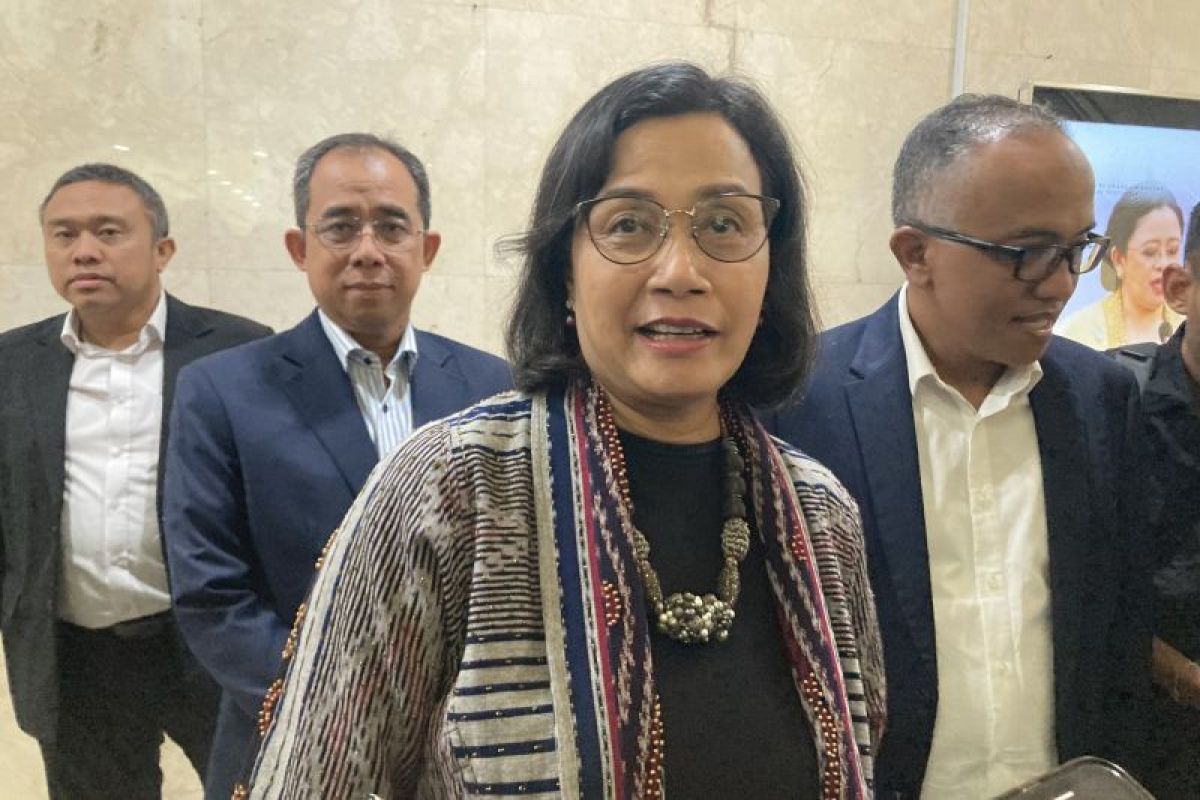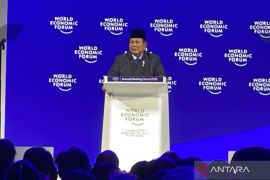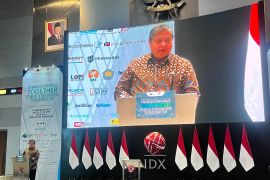Indonesia has been relatively successful in keeping the amount of its debt under control in the midst of global uncertainties and deteriorating geopolitical tensions, according to Finance Minister Sri Mulyani Indrawati.
Indonesia's debt-to-gross domestic product (GDP) ratio was pegged at 36.68 percent as of July-end, a decline from 39.21 percent recorded in 2023.
In contrast, the minister pointed out that the debt-to-GDP ratio of various developed countries had spiked from 70 percent to 112 percent, on average, after the COVID-19 pandemic, while that of developing states rose from an average of 47 percent to 71 percent.
"If we use this perspective, it is safe to say that Indonesia's debt ratio is still under control," the state treasurer remarked during a meeting with Committee IV of the Regional Representative Council (DPD) in Jakarta on Monday.
Indrawati attributed the hike in debts of various countries to the lasting effects of the pandemic coupled with ongoing wars in different regions, which eventually limited the available fiscal and monetary options for governments.
The minister observed no signal for improvements in global conditions this year, noting that the world is instead being plunged into a more alarming situation on account of increasingly antagonistic geopolitics and fierce wars.
"We are witnessing a convergence between the United States and China, which has rendered the world fragmented. The competition between the two countries has sparked the practices of protectionism, ultimately harming the global economy," she stated.
According to Indrawati, the raging wars had caused a spike in global interest rates as well as the prices of commodities, as an armed conflict tends to disrupt supply chains.
All the unfavorable trends have led to a global economic slowdown. The International Monetary Fund has projected that the global economic growth rate this year will be stuck at 3.2 percent before witnessing a slight increase to 3.3 percent in 2025.
Related news: Indonesia improves debt financing in July: Finance Minister
Related news: Indonesia expects more global support for developing countries
Indonesia's debt-to-gross domestic product (GDP) ratio was pegged at 36.68 percent as of July-end, a decline from 39.21 percent recorded in 2023.
In contrast, the minister pointed out that the debt-to-GDP ratio of various developed countries had spiked from 70 percent to 112 percent, on average, after the COVID-19 pandemic, while that of developing states rose from an average of 47 percent to 71 percent.
"If we use this perspective, it is safe to say that Indonesia's debt ratio is still under control," the state treasurer remarked during a meeting with Committee IV of the Regional Representative Council (DPD) in Jakarta on Monday.
Indrawati attributed the hike in debts of various countries to the lasting effects of the pandemic coupled with ongoing wars in different regions, which eventually limited the available fiscal and monetary options for governments.
The minister observed no signal for improvements in global conditions this year, noting that the world is instead being plunged into a more alarming situation on account of increasingly antagonistic geopolitics and fierce wars.
"We are witnessing a convergence between the United States and China, which has rendered the world fragmented. The competition between the two countries has sparked the practices of protectionism, ultimately harming the global economy," she stated.
According to Indrawati, the raging wars had caused a spike in global interest rates as well as the prices of commodities, as an armed conflict tends to disrupt supply chains.
All the unfavorable trends have led to a global economic slowdown. The International Monetary Fund has projected that the global economic growth rate this year will be stuck at 3.2 percent before witnessing a slight increase to 3.3 percent in 2025.
Related news: Indonesia improves debt financing in July: Finance Minister
Related news: Indonesia expects more global support for developing countries
Translator: Martha H, Tegar Nurfitra
Editor: Rahmad Nasution
Copyright © ANTARA 2024












